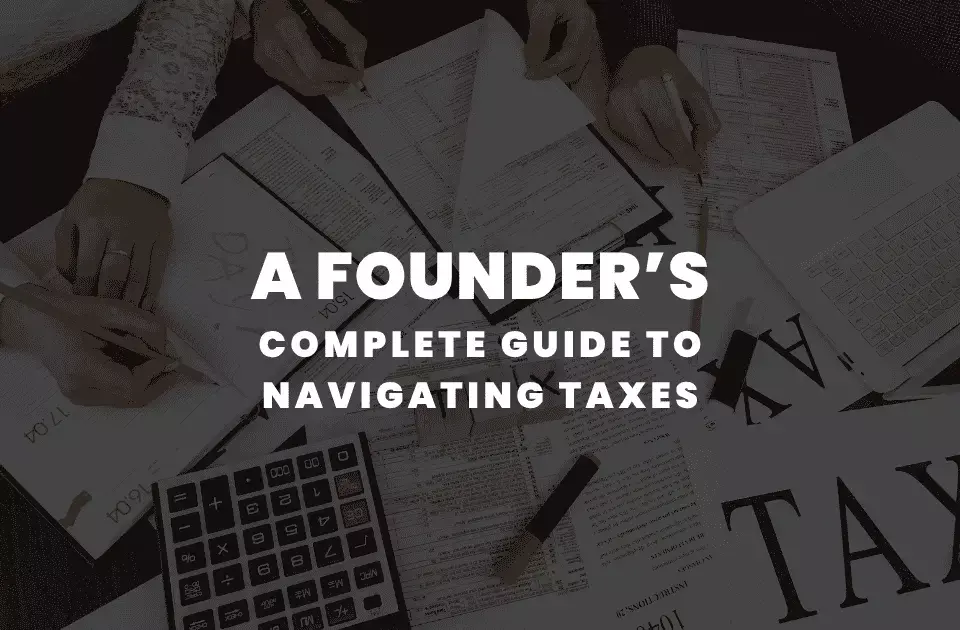How Much Does a Tax Strategist Cost? Pricing Explained

Do Uber Drivers Get Tax Refunds? Essential Tax Tips for Gig Drivers
December 16, 2024
DBA vs LLC: Choosing the Best Option for Your Small Business
January 6, 2025How Much Does a Tax Strategist Cost? Pricing Explained
When it comes to managing finances, especially taxes, hiring a professional can save you significant time, money, and stress. A tax strategist offers specialized advice to help individuals and businesses minimize their tax liability, maximize deductions, and plan effectively for the future.
However, one of the most common questions prospective clients ask is, how much does a tax strategist cost? The answer depends on several factors, including the complexity of your financial situation, the scope of services required, and the professional’s experience and reputation.
This blog will break down the costs, helping you decide whether hiring a tax strategist is the right investment for you.
Understanding the Role of a Tax Strategist
A tax strategist is more than just someone who files your tax returns. They focus on proactive planning to reduce tax burdens and create strategies fitted to your unique financial situation. Some of their responsibilities include:
- Identifying tax-saving opportunities.
- Advising on investments and expenditures for optimal tax benefits.
- Ensuring compliance with changing tax laws.
- Structuring business entities for maximum tax efficiency.
- Providing long-term tax planning aligned with your financial goals.
Tax strategists play a crucial role in simplifying the tax system. For instance, businesses with global operations often deal with complicated tax regulations. Strategists can help ensure compliance and minimize tax liabilities. Similarly, individuals with multiple income sources, like freelancers or rental property owners, can greatly benefit from personalized tax advice.
Given the specialized nature of these services, the costs for hiring a tax strategist can vary widely. Understanding the nuances of their role helps clarify why their expertise is worth the investment.
Factors Influencing Tax Strategist Costs
The cost of a tax strategist depends on several variables. Here are some key factors:
1. Type of Client
Individuals: If you’re an individual with a relatively straightforward financial situation, such as a single source of income and basic deductions, the cost will likely be lower. Individuals with high earnings or unique circumstances, like substantial investments or international assets, may face higher fees due to the complexity of their needs.
Businesses: Entrepreneurs, startups, and corporations usually have more complex tax needs, which can drive up the cost of hiring a strategist. Business owners may require assistance with payroll taxes, employee benefits, or compliance across multiple states or countries.
2. Scope of Services
Some tax strategists only offer specific services, such as annual tax planning or entity structuring, while others provide comprehensive support, including year-round advice and audit representation. The broader the scope, the higher the cost. For instance, strategists who offer tax forecasting, retirement planning, and real-time financial advice may charge premium rates.
3. Experience and Expertise
A seasoned tax strategist with years of experience and a track record of success typically charges more than a less experienced professional. Specializations in certain industries or niches may also affect pricing. For example, strategists with expertise in real estate taxation or cryptocurrency transactions often command higher fees due to their specialized knowledge.
4. Geographic Location
Tax strategist costs can vary based on location. For instance, professionals in high-cost cities like New York or San Francisco may charge more than those in smaller towns or rural areas. However, with the rise of virtual consultations, some clients can access top-tier strategists regardless of location, potentially balancing costs.
5. Complexity of Your Finances
The more complex your financial situation—multiple income streams, international investments, or intricate business structures—the higher the cost of tax strategy services. Complex scenarios require additional research, analysis, and planning, which naturally increases fees.
6. Billing Structure
Some tax strategists charge hourly rates, while others offer flat fees for specific services or annual retainer packages. Understanding their billing structure is crucial to evaluating costs. For instance, while an hourly rate might suit a short-term project, a retainer package could be more cost-effective for ongoing support.
Typical Costs of Hiring a Tax Strategist
To give you a clearer picture, here’s a breakdown of typical costs based on common scenarios:
1. Hourly Rates
Range: $100 to $500 per hour.
Tax strategists may charge an hourly rate for consultations, audits, or one-off services. Rates often depend on the strategist’s expertise and location. High-demand professionals with niche expertise may charge upwards of $500 per hour.
2. Flat Fees
Range: $1,000 to $10,000+ per project.
Flat fees are common for specific services, such as setting up a business entity, creating a tax savings plan, or providing estate planning advice. Clients often prefer flat fees for predictable costs, especially for large-scale projects.
3. Retainer Packages
Range: $2,000 to $20,000+ annually.
Many tax strategists offer retainer agreements for ongoing support. These packages typically include periodic consultations, tax filings, and year-round advice tailored to your needs. For high-income earners or businesses, a retainer ensures access to expert advice throughout the year.
4. High-Net-Worth Individuals and Corporations
For clients with substantial wealth or complex financial portfolios, tax strategist costs can exceed $50,000 annually. These professionals often cater to high-net-worth individuals and corporations requiring intricate tax planning. Services may include advanced estate planning, international tax compliance, and investment optimization.
How to Choose the Right Tax Strategist
Investing in a tax strategist is a significant decision, so it’s essential to choose the right professional for your needs. Here are some tips:
1. Evaluate Credentials
Look for certifications such as CPA (Certified Public Accountant), EA (Enrolled Agent), or tax law expertise. These qualifications indicate a high level of proficiency and adherence to professional standards.
2. Check Experience in Your Industry
If you’re a business owner, ensure the strategist has experience working with companies in your sector. Industry-specific knowledge can make a big difference in identifying tax-saving opportunities. For example, a tech startup may benefit from R&D tax credits, while a real estate developer might need advice on depreciation strategies.
3. Ask About Their Approach
Some strategists are proactive, constantly updating their clients on new tax strategies. Others are more reactive, focusing on immediate issues. Choose someone whose approach aligns with your expectations. A proactive strategist can save you significant amounts in the long run by identifying opportunities early.
4. Request References
A reputable tax strategist should be able to provide testimonials or references from previous clients. Positive feedback from similar clients can give you confidence in their abilities.
5. Compare Pricing and Value
While cost is an important factor, consider the value of the services provided. A strategist who saves you tens of thousands of dollars in taxes may justify a higher fee. Look for professionals who can quantify the potential savings or benefits of their strategies.
Benefits of Hiring a Tax Strategist
Although the cost of hiring a tax strategist can seem significant, the potential benefits often outweigh the expense. Here are some advantages:
1. Tax Savings
A skilled tax strategist can help you uncover deductions, credits, and other opportunities to reduce your tax burden. They often identify strategies that clients might overlook, such as lesser-known credits or industry-specific deductions. For instance, businesses can utilize credits for research and development, while individuals may optimize charitable contributions for maximum benefit.
2. Compliance and Peace of Mind
Tax laws are complex and constantly changing. A professional ensures you stay compliant while minimizing risks. This peace of mind is invaluable, especially during audits or tax season. A strategist not only prevents errors that could trigger penalties but also prepares you for potential inquiries from tax authorities, offering representation if needed.
3. Time Savings
Managing taxes can be time-consuming, especially for business owners. Delegating this task allows you to focus on other priorities, such as growing your business or enjoying personal time. Instead of spending hours navigating tax codes or preparing documents, you can rely on a professional to handle these intricacies efficiently.
4. Long-Term Financial Planning
Beyond immediate tax savings, strategists help you plan for the future, whether it’s retirement, estate planning, or business growth. They analyze your financial goals and design strategies that align with them. For example, they may recommend retirement accounts with tax advantages or advise on succession planning to preserve wealth for future generations.
5. Optimized Business Operations
For business owners, tax strategists can enhance operational efficiency by identifying areas where tax benefits can be maximized. This includes advising on payroll structures, employee benefits, and even supply chain decisions that have tax implications. Such insights can lead to significant cost savings over time.
6. Strategies for Unique Situations
Every individual or business has unique financial circumstances. A tax strategist customizes their approach to your specific needs, whether that involves navigating international tax laws, managing rental property income, or addressing the implications of a sudden windfall. This advice ensures you’re not overpaying or missing opportunities.
Comparing Tax Strategists vs. Tax Advisors
While researching professionals, you might also encounter tax advisors. So, how much does a tax advisor cost, and how do they differ from tax strategists? Tax advisors typically focus on compliance and tax preparation, while tax strategists take a more proactive approach to planning and savings.
Tax advisor fees are often lower, ranging from $200 to $1,000 for tax return preparation, but they may not provide the extensive planning services offered by a strategist. For clients seeking long-term benefits, a strategist is often the better choice.
Is a Tax Strategist Worth It?
The cost of hiring a tax strategist depends on your financial situation, the services required, and the professional’s expertise. While the fees can range from a few thousand dollars to tens of thousands, the potential savings and peace of mind often justify the investment.
By understanding your needs, evaluating credentials, and comparing pricing, you can find the right tax strategist to help you achieve your financial goals.
Whether you’re an individual looking to optimize deductions or a business owner seeking strategic tax planning, hiring a tax strategist could be the key to significant savings and smarter financial management. If you’re wondering about the tax strategist cost, remember that the value they bring can far outweigh the expense.
Farwah Jafri
Farwah Jafri is a financial management expert and Product Owner at Monily, where she leads financial services for small and medium businesses. With over a decade of experience, including a directorial role at Arthur Lawrence UK Ltd., she specializes in bookkeeping, payroll, and financial analytics. Farwah holds an MBA from Alliance Manchester Business School and a BS in Computer Software Engineering. Based in Houston, Texas, she is dedicated to helping businesses better their financial operations.




